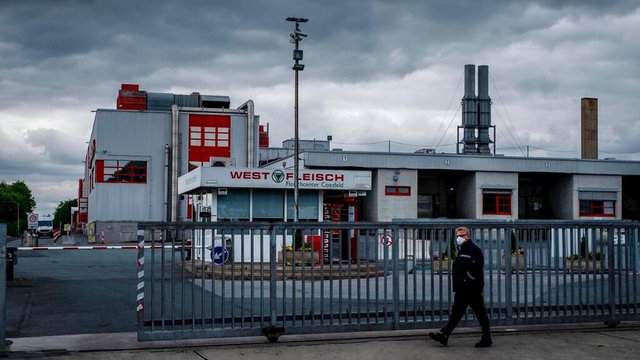
Working conditions for migrants in German slaughterhouses are under the spotlight after more than 200 workers tested positive for COVID-19 at a factory in Coesfeld, in the west of the country.
Coronavirus outbreaks have also been identified in at least two other meat processing plants in Germany. The majority of those infected were from Romania and Bulgaria.
Officials say the virus most likely spread through shared staff housing, and the outbreaks are drawing attention to the industry's difficult working conditions.
"Workers in the German meat industry work very often through subcontractors, not for the slaughterhouses themselves, and the working conditions at these subcontractors are often very, very bad," said Szabolcs Sepsi, a counsellor at DGB Fair Mobility, which defends migrant workers' rights in Germany.
